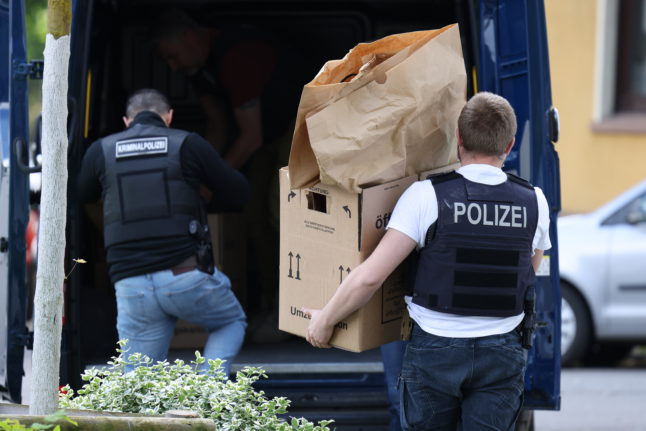“The police prevented a nightmare,” said Herbert Reul, interior minister of North Rhine-Westphalia (NRW) state.
Police in the city of Essen had stormed the teen’s room overnight, taking him into custody and uncovering 16 “pipe bombs”, as well as anti-Semitic and anti-Muslim material.
Some of the pipe bombs found contained nails, but officers did not find any detonators, Reul said.
There are “indications suggesting the young man has serious psychiatric problems and suicidal thoughts,” said Reul.
Material found so far in the suspect’s room include his own writing which constituted “a call for urgent help by a desperate young man.”
The suspect was allegedly planning to target his current school or another where he studied previously.
“All democrats have a common task to fight against racism, brutalisation and hate,” said NRW’s deputy premier Joachim Stamp, as he thanked police for “preventing a suspected Nazi terror attack”.
The suspect is being questioned while investigators continue to comb his home for evidence.
Investigators believe that he was acting alone.
They had been tipped off by another teen who informed them that the young man “wanted to place bombs in his school”, located about 800 metres from his home.
The school, as well as another institution, were closed on Thursday as investigators undertook fingertip searches as the locations to ensure that no bombs had been placed on site.
‘Neo-Nazi networks’
Germany has been rocked by several far-right assaults in recent years, sparking accusations that the government was not doing enough to stamp out neo-Nazi violence.
In February 2020 a far-right extremist shot dead 10 people and wounded five others in the central German city of Hanau.
Large amounts of material championing conspiracy theories and far-right ideology were subsequently found in the gunman’s apartment.
And in 2019, two people were killed after a neo-Nazi tried to storm a synagogue in Halle on the Jewish holiday of Yom Kippur.
Germany’s centre-left-led government under Chancellor Olaf Scholz took office in December pledging a decisive fight against far-right militants and investigators in April carried out country-wide raids against “neo-Nazi networks”, arresting four suspects.
The suspects targeted in the raids were believed to belong to the far-right martial arts group Knockout 51, the banned Combat 18 group named after theorder in the alphabet of Adolf Hitler’s initials, US-based Atomwaffen (Atomic) Division or the online propaganda group Sonderkommando 1418.
German authorities were also battling to clean extremists from within their ranks. Last year, the state of Hesse said it was dissolving Frankfurt’s elite police force after several officers were accused of participating in far-right online chats and swapping neo-Nazi symbols.



 Please whitelist us to continue reading.
Please whitelist us to continue reading.
Member comments